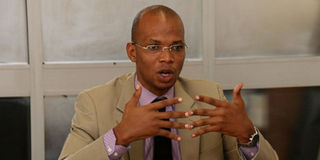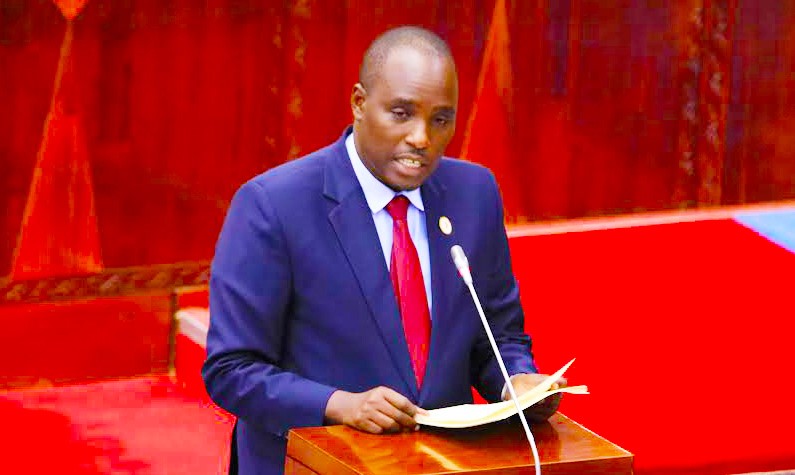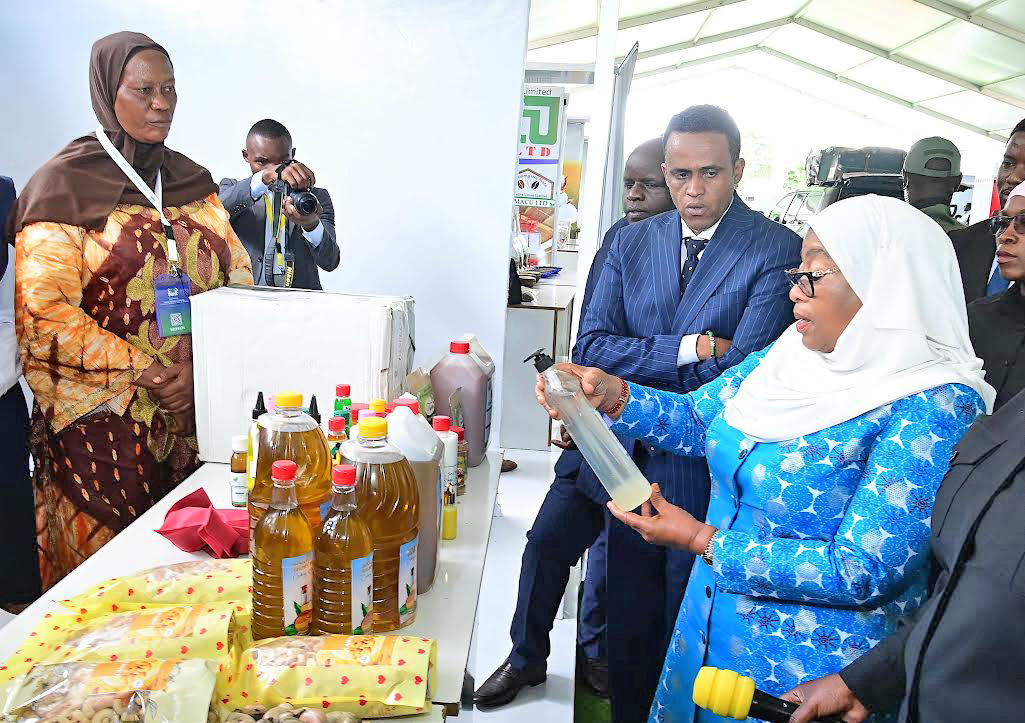Key areas as stakeholders debate foreign policy review

The minister for Foreign Affairs and East African Cooperation, Mr January Makamba. Photo | File
What you need to know:
- Economic diplomacy takes centre stage in the proposed revisions, with a call for a specific strategy to address the coordination of economic diplomacy
Dar es Salaam. The government proposed six major reforms to its foreign policy yesterday, including a pledge to preserve the country's rich traditions and customs in the face of accelerating globalisation.
Other areas include the introduction of fresh perspectives on economic diplomacy, the blue economy and the global promotion of Kiswahili.
The proposed changes were presented during the second conference in Dar es Salaam, where the government sought feedback from stakeholders following the initial gathering in Arusha last year.
The proposed amendments aim to address contemporary challenges and align the nation's foreign policy with evolving global dynamics.
The Minister for Foreign Affairs and East African Cooperation, Mr January Makamba, said the review would have been completed, but it was prolonged to get more public opinion.
"This policy was submitted to the cabinet last year for approval. Before the debate, President Samia Suluhu Hassan said that she wants more Tanzanians to read, understand the policy and express their views. So, this matter would have ended if President Hassan had not intervened," said Mr Makamba.
The assistant director of policy and planning at the Ministry of Foreign Affairs and East African Cooperation, Mr Justin Kisoka, highlighted the rationale behind the revision.
"The current policy, formulated in 2001, has served us well by emphasising economic diplomacy. However, given the internal and external changes over the years, a thorough review is crucial to ensuring its continued relevance," he said.
The proposed additions to the foreign policy framework include a robust emphasis on "protecting the traditions and customs of the country, a move that signalled a recognition of the importance of preserving the nation's cultural identity in the face of globalisation.
Economic diplomacy takes centre stage in the proposed revisions, with a call for a specific strategy to address the coordination of economic diplomacy.
The government aims to navigate the complexities of the global economy by incorporating new issues and putting a spotlight on the blue economy.
Additionally, a push to commercialise Kiswahili reflects what experts say is “a commitment to elevating the national language on the global stage.”
Diaspora participation emerged as another focal point, acknowledging the role of Tanzanians living abroad and citizens of other countries with Tanzanian origins.
Gender and youth issues were also highlighted in Mr Kisoka’s presentation, underscoring the government's plan for inclusivity and empowerment.
Stakeholders at the conference expressed a range of perspectives on the proposed changes. Former Land Minister and diplomat Anna Tibaijuka emphasised the need to prepare diplomats to protect Tanzania's historical friendships.
Meanwhile, Archbishop Nelson Kisare of Menonite Church Tanzania urged a deeper consideration of dignity, rights, and humanity in the policy framework.
Bishop Kisare queried whether the policy aligned with the principles of socialism as enshrined in the 1977 Constitution.
“There is a need to clarify the national traditions and customs, recognising the diversity within the Tanzanian population,’ he noted.
Chairperson of the Civil United Front (CUF), Prof Ibrahimu Lipumba, urged the policy not to compromise on national values and encouraged leveraging global opportunities through youth engagement.
Climate change emerged as a critical issue, with calls for a clear strategy to combat its effects.
A member of the Central Council of CCM, Mr Richard Kasesela, emphasised the need for the policy to guide the building of a national brand.
Sheikh Musa Kundecha, a member of the Central Council of Islamic Institutions in Tanzania, highlighted the potential contributions of Tanzanians living abroad.
A policy adviser from the civil society organisations, Mr Baraka Thomas, stressed the importance of the policy taking a stance on global issues, including condemning human rights violations.
Additional reporting by Kelvin Matandiko





